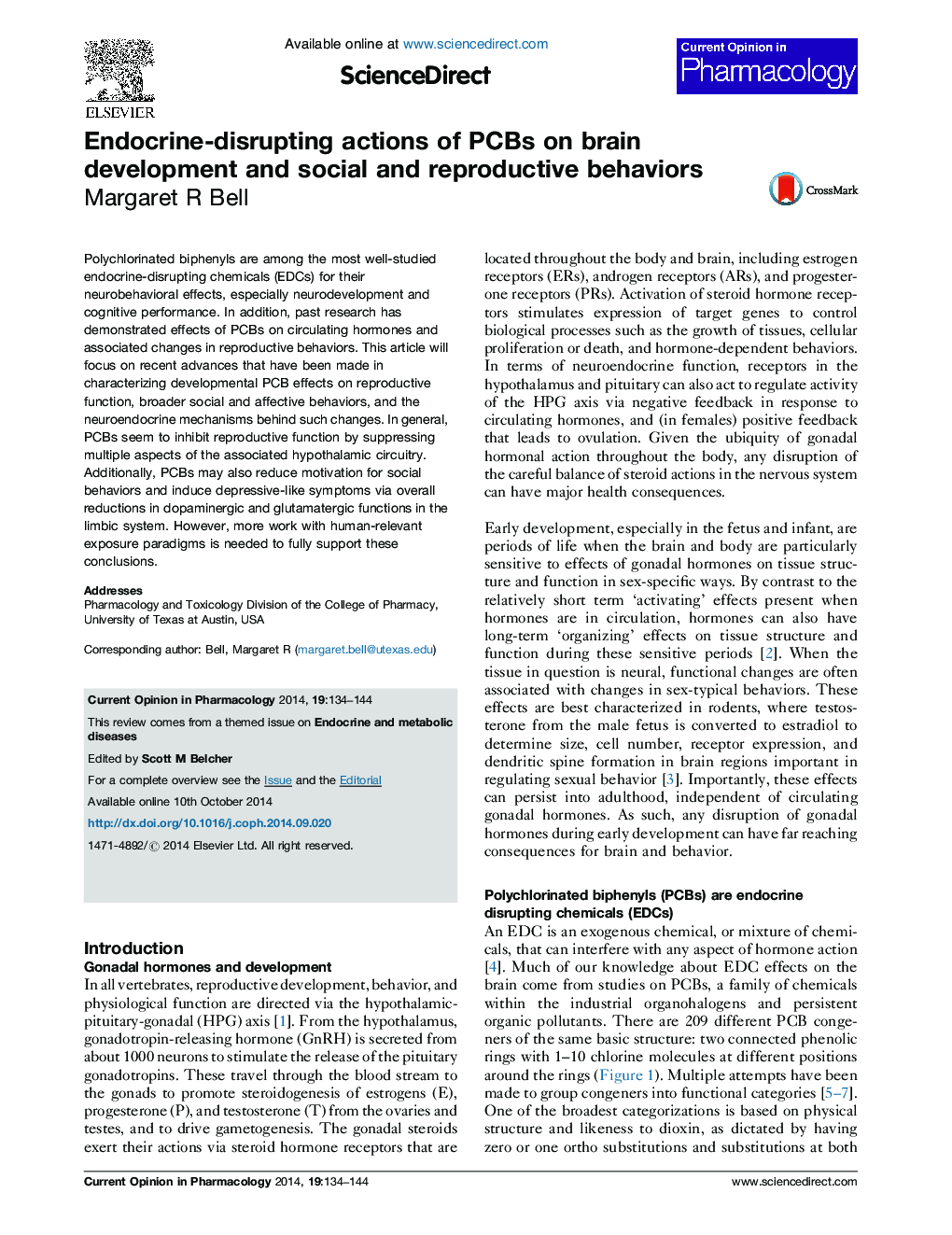| Article ID | Journal | Published Year | Pages | File Type |
|---|---|---|---|---|
| 2529920 | Current Opinion in Pharmacology | 2014 | 11 Pages |
•Polychlorinated biphenyls affect a range of social and reproductive behaviors.•Effects may be mediated via hormonal, dopaminergic, and/or glutamateric mechanisms.•Most effects depend on specific congeners, dose, exposure time, and sex of animal.•Additional research using human-relevant exposure levels and mixtures is needed.
Polychlorinated biphenyls are among the most well-studied endocrine-disrupting chemicals (EDCs) for their neurobehavioral effects, especially neurodevelopment and cognitive performance. In addition, past research has demonstrated effects of PCBs on circulating hormones and associated changes in reproductive behaviors. This article will focus on recent advances that have been made in characterizing developmental PCB effects on reproductive function, broader social and affective behaviors, and the neuroendocrine mechanisms behind such changes. In general, PCBs seem to inhibit reproductive function by suppressing multiple aspects of the associated hypothalamic circuitry. Additionally, PCBs may also reduce motivation for social behaviors and induce depressive-like symptoms via overall reductions in dopaminergic and glutamatergic functions in the limbic system. However, more work with human-relevant exposure paradigms is needed to fully support these conclusions.
